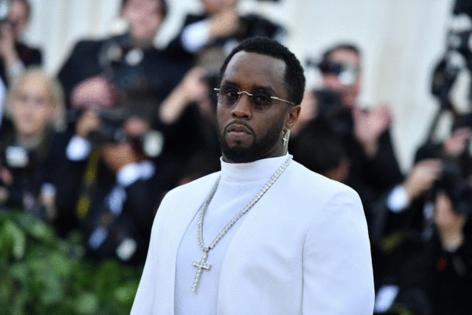Sean 'Diddy' Combs argues right to organize 'freak-offs' in bid to get guilty verdicts tossed
Published in News & Features
NEW YORK — In an effort to get Sean “Diddy” Combs out from behind bars, lawyers for the hip-hop mogul have asked the judge presiding over his Manhattan sex crimes case to set aside the recent guilty verdicts, arguing the disgraced rap icon had a First Amendment right to fund and organize the notorious “freak-off” sessions central to the case.
In a late-night motion Wednesday, Combs’ legal team argued that his July 2 conviction in Manhattan Federal Court on two Mann Act counts of transporting people for prostitution was unique — that, according to their research, nobody else had ever been held legally responsible for the same conduct.
“It should not stand at all,” they said. They asked the verdict be set aside or a new trial ordered.
After a monthslong trial, Combs, who has been incarcerated at the Metropolitan Detention Center in Brooklyn since his September 2024 arrest, was acquitted of the most serious counts he faced, sex trafficking and RICO conspiracy. Those counts carried a potential life sentence.
“To our knowledge, Mr. Combs is the only person ever convicted of violating the statute for conduct anything like this,” his lawyers wrote. “Mr. Combs never had sex with the supposed ‘prostitutes.’”
The motions by the multimillionaire rap mogul once known as “Puff Daddy” contended that Combs, “at most,” put down cash not for sex but to “engage in voyeurism” as part of a swingers lifestyle in so-called “freak-off” encounters, in which jurors heard he paid people to engage in degrading sex acts with his girlfriends in dayslong, marathon sessions while he filmed and masturbated.
“(H)e was producing amateur pornography for later private viewing. This is protected First Amendment conduct,” his appellate attorney Alexandra Shapiro wrote.
“Mr. Combs’s amateur porn, like many other adult films, was creative, intricate, and highly choreographed.”
Combs’ legal team repeated the defense’s assertion at trial that he paid for the male performers’ time. They said prosecutors were required to prove that, at the time travel to freak-offs was being arranged on his dime, he intended to pay them for sex.
“Even if sex was foreseeable during a freak-off or hotel night, that doesn’t mean Mr. Combs believed or intended prostitution would occur, even if money was exchanged,” they wrote.
At trial, jurors heard accounts of Combs declining to pay escorts if they didn’t ejaculate at the right time and using the footage of freak-offs as blackmail against his alleged victims.
Stylist Deonte Nash recalled the mogul once pulling him and Combs’ ex, Casandra “Cassie” Ventura off the road to threaten her with releasing humiliating tapes, saying he’d start by sending them to her parents’ employers.
Ventura described the freak-off sessions as sordid, testifying that Combs had, on occasion, directed men to urinate in her mouth and that he forced her to sleep with escorts when she was menstruating and healing from his assaults.
The jury also saw footage of Combs brutally beating Ventura inside a lobby at the Intercontinental Hotel in Los Angeles in 2016, a savage assault Ventura said occurred after she tried to leave a freak-off when Combs punched her. Jurors saw photographs of other beatings Ventura endured and heard testimony from witnesses who testified under the pseudonyms Mia and Jane Doe about other instances of Combs’ violence.
Combs’ legal team said if the judge declines to toss the verdicts, he should order a new trial on the counts he was convicted of “due to severe spillover prejudice from reams of inflammatory evidence,” arguing the damning hotel footage was only relevant to the racketeering and sex trafficking counts.
“Those videos showed Combs engaging in a horrible act of violence,” Shapiro wrote. “The RICO and sex trafficking counts were the core of the government’s case, and the evidence going to those counts completely dominated the trial.”
A spokesman for the Manhattan U.S. attorney’s office, which tried the case, declined to comment. Prosecutors are expected to respond to the request in writing, in addition to Combs’ motion earlier this week asking the judge once again to grant him release on $50 million bail.
Judge Arun Subramanian shot down Combs’ request to be released on bail in the hours after he was found guilty, quoting his lawyer Marc Agnifilo’s admissions to the jury that Combs had assaulted his former romantic partners, violence that the judge said was “impossible to police with conditions.” Combs’ defense maintained that while he had behaved violently toward women, that reality didn’t bear on the federal crimes he was charged with.
The judge is also yet to rule on Combs’ motion in the wake of the verdict, requesting that Subramanian acquit him and find that prosecutors didn’t prove their case.
As it stands, Combs is set to be sentenced Oct. 3. The two counts he was convicted of carry a maximum term of 10 years.
The lead prosecutor who had been handling Combs’ case, veteran Assistant U.S. Attorney Maurene Comey, was fired by the Justice Department earlier this month without reason.
Comey also handled the sex trafficking prosecutions of deceased financier Jeffrey Epstein and his convicted accomplice, Ghislaine Maxwell, the duo whose abuse of teenage girls and women has faced renewed interest amid the DOJ and FBI’s decision not to release 300 gigabytes of related data recovered in investigations and Wall Street Journal exposés about President Donald Trump’s inclusion in the Epstein files.
In addition to his criminal case, Combs, the 55-year-old Bad Boy Records co-founder, faces dozens of lawsuits brought by men and women accusing him of engaging in sexual predation, including rape and sexual assault, for decades. He denies all allegations.
_____
©2025 New York Daily News. Visit at nydailynews.com. Distributed by Tribune Content Agency, LLC.







Comments